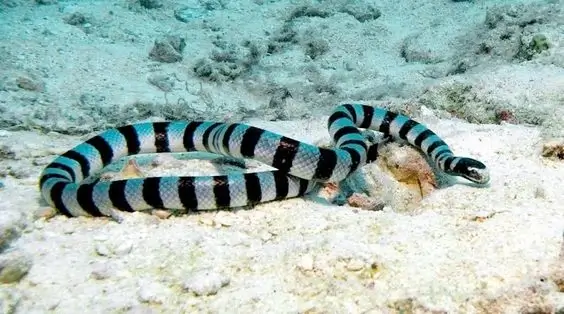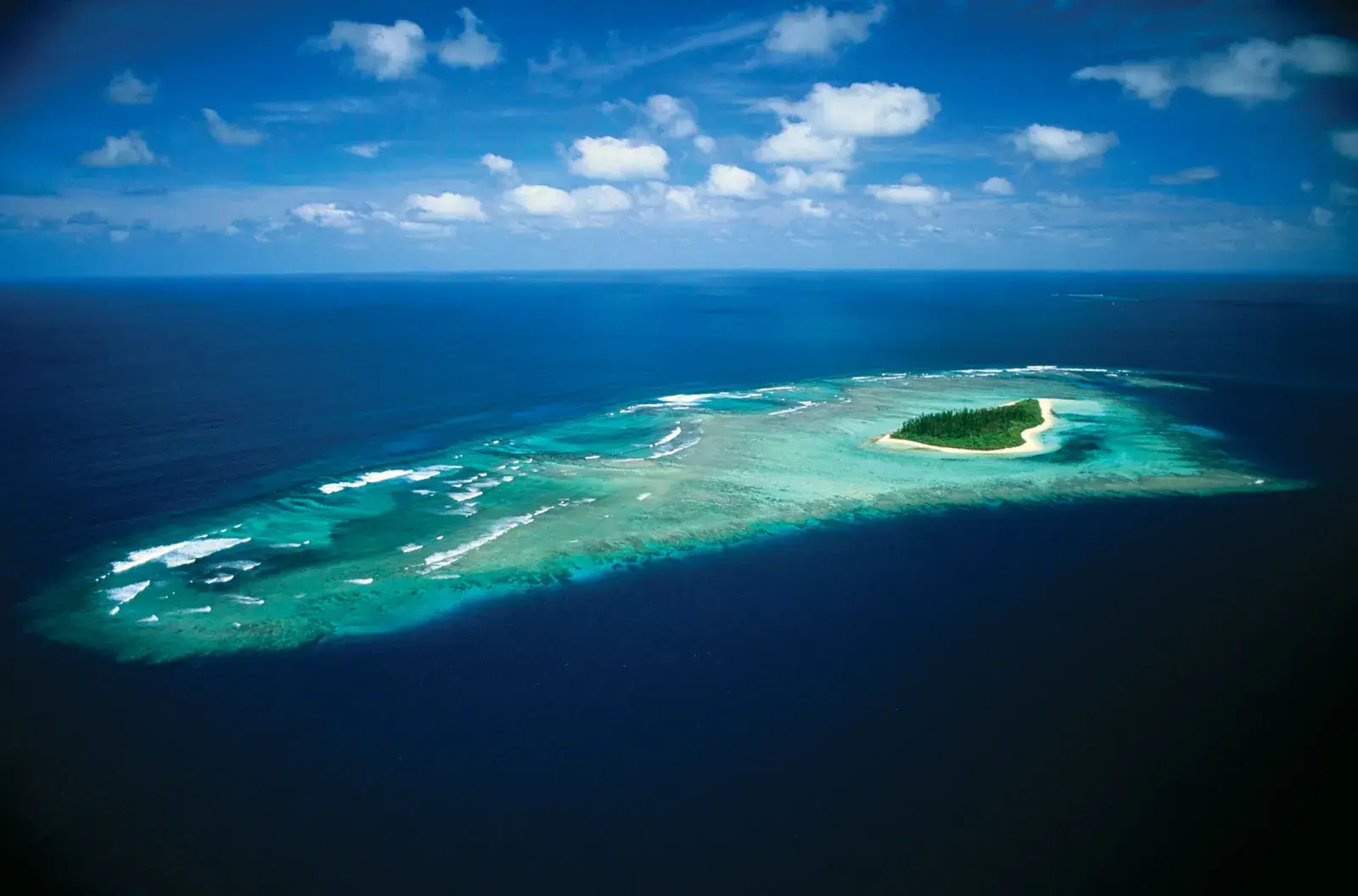Sun-kissed beaches, turquoise waters, and vibrant coral reefs – New Caledonia paints a picture of idyllic island paradise.
However, for one Australian tourist, paradise took a terrifying turn when a seemingly “cute” encounter with a striped beach dweller almost ended in tragedy.
Suzanne Parish, vacationing with her partner, spotted what she thought was an adorable little snake basking on the sand.
Charmed by its colorful markings, she, like many, succumbed to the allure of capturing a unique wildlife moment.
What followed was a series of actions that could have had fatal consequences. Suzanne picked up the snake, posed for photos, and even went as far as kissing it.
 via creatures-of-the-world site
via creatures-of-the-world site
Unbeknownst to her, the “cute” creature was no harmless reptile but a highly venomous sea krait, a marine snake whose bite packs a punch ten times stronger than a rattlesnake.
Fortunately, Suzanne escaped unscathed, a stark reminder of the hidden dangers lurking beneath the idyllic veneer of nature’s beauty.
This incident raises several crucial questions. Why do we, as humans, feel compelled to interact with wild animals, often ignoring potential risks?
The answer lies in part in our inherent curiosity and a desire for unique experiences. Social media also plays a role, with the pressure to capture and share extraordinary moments sometimes overshadowing common sense.
But what Suzanne’s encounter highlights most vividly is the importance of respecting wildlife. Wild animals, regardless of their appearance, are not pets and should not be treated as such.
Their behavior is unpredictable, and even seemingly docile creatures can react defensively when threatened or stressed.

So, how can we ensure safe and responsible travel without compromising our natural curiosity? Here are some key takeaways:
- Knowledge is power: Research the local wildlife before embarking on any trip. Familiarize yourself with the common species, particularly those that pose a threat.
- Observe, don’t disturb: Admire wildlife from a safe distance. Avoid any actions that could provoke an animal, such as getting too close, making loud noises, or attempting to touch them.
- Resist the selfie temptation: Putting wildlife at risk for a social media post is simply not worth it. Remember, responsible tourism prioritizes both human safety and animal welfare.
- Spread awareness: Share your experience with others to raise awareness about responsible wildlife interaction.
Suzanne’s close call serves as a cautionary tale for all travelers. While exploring new landscapes and encountering diverse wildlife is an enriching experience, it’s crucial to remember that respecting nature’s boundaries is paramount.
By prioritizing safety and education, we can ensure that our adventures remain joyful and memorable, without jeopardizing ourselves or the creatures we share this planet with.
Let Suzanne’s brush with death be a lesson not of fear, but of responsible travel. May we all navigate the world with open eyes, a thirst for knowledge, and a deep respect for the wild beings that call it home.









